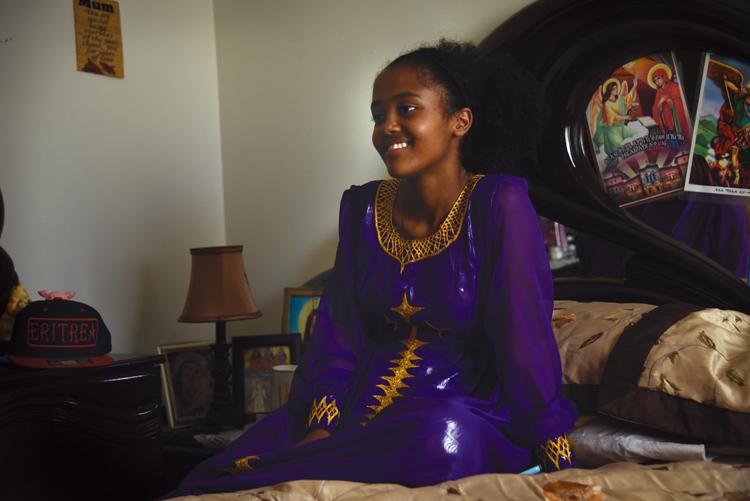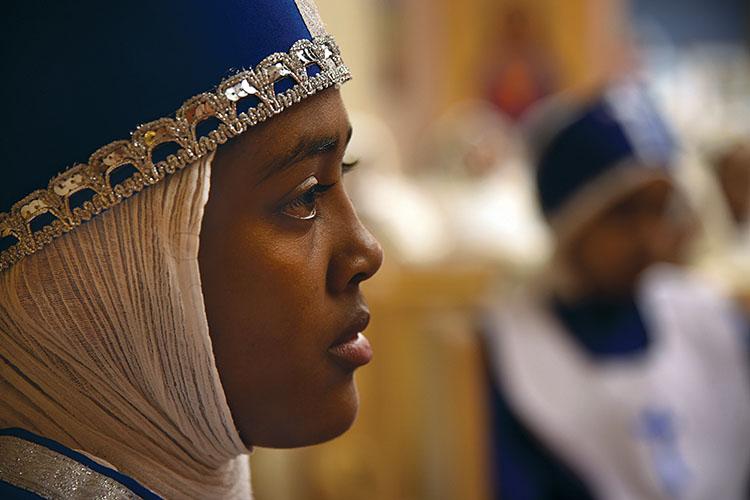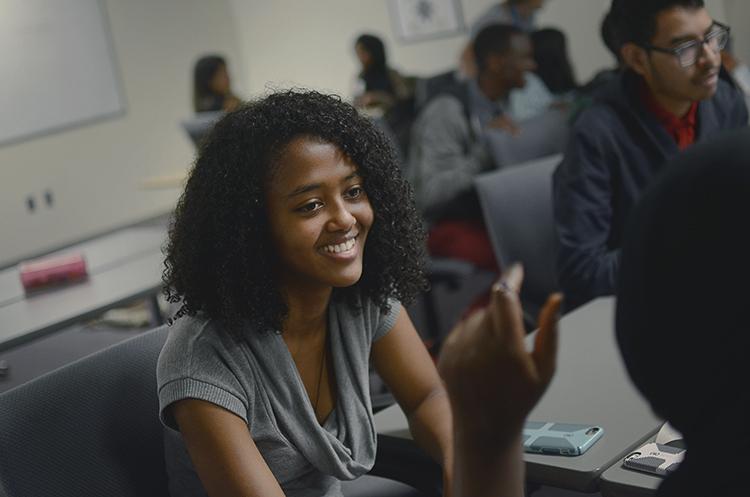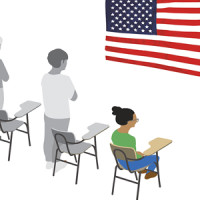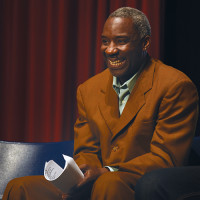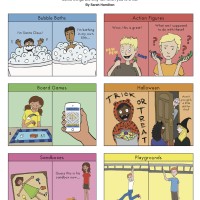Yanet Asghedom sits alongside fellow students at the International Youth Leadership Council monthly meeting. It’s a nearly six-hour event that’s designed to give a voice to students, for whom English is their second language.
A slide pops up on the screen at the front of the room. “What’s in a Name?” the slide asks. A list of questions follow: “Do you like your name?” “What has your experience been?”
The room falls silent as the students ponder their responses before a group discussion.
One person stands and tells stories of mispronunciations and pressures to go by an easier, more common name. Another follows, discussing her name’s origins and learning to find pride in its rarity.
Others nod diligently. There’s a mutual understanding of one another that seems to fill the room.
The council, known for short as IYLC, has given Asghedom – a 17-year-old Eritrean immigrant – and others a chance to connect with other students of similar backgrounds.
For Asghedom, a Grant senior who has been a member of the council going on three years now, the experience is unlike any other. “I feel comfortable at IYLC,” she says. “It’s just so cool to be around people that are the same level. They speak multiple languages, and then they’re not going to judge you because of your English or your accent.”
Like many of the council members, Asghedom’s life story contrasts with the average high school student. Asghedom immigrated to the United States at age 14. Knowing little English when she arrived, her educational experience would greatly differ from her American peers as she struggled to overcome the language barrier.
But coming from another country has other implications. “You know what you’re talking about because it’s in your language, and you understand what’s going on,” Asghedom says about a life where she could use her native language, Tigrinya.
“But coming here … You can’t really be a leader or have confidence in what you say when you come here because you have to know what you’re talking about first.”
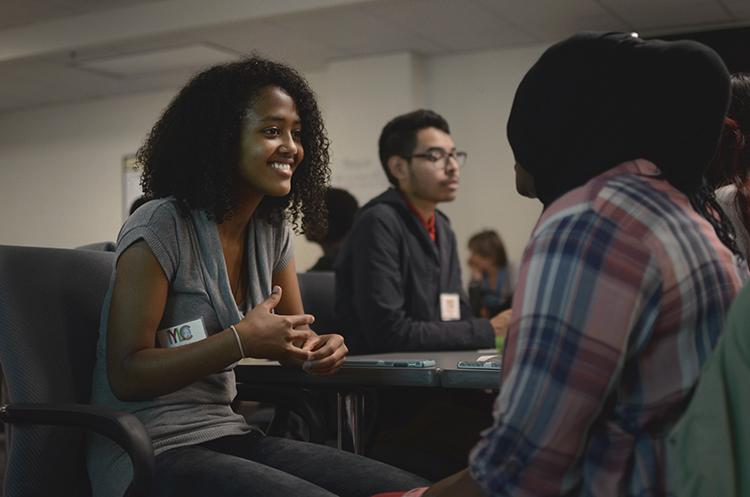
Experts say it’s a struggle most high school students don’t experience.
Klarissa Hightower is the assistant director of Portland Public Schools’ English as a Second Language program. She acknowledges the troubles many ESL immigrant students face.
“They’re having to learn not only the language but the culture at the same time,” Hightower says. “It can be very difficult because as you grow up, wherever you are, you’re taking that in as your norm … You come to a different country where a lot of your norms are nowhere to be found.”
Asghedom has made significant progress in her growth as a language learner, though there are still everyday hurdles she faces as an ESL student. As one of only nine in her English Language Development class at Grant, connecting with fellow students who are different than her has proven difficult.
Because she has struggled to find a larger community at Grant, Asghedom holds tightly onto her birth country’s culture. “If you lose your culture, your language … it’s like losing everything,” she says.
Asghedom, who was born Nov. 2, 1998, in Asmara, Eritrea, recalls fond memories of her childhood. School days lasted from 7 a.m. to noon. After class, students often did homework until reuniting in the late afternoon. She remembers the streets being flooded with kids.
“We’d come back and play soccer until 10, until we can’t see the ball anymore,” recalls her older brother, Saimon Asghedom.
Growing up as Orthodox Christians, Yanet Asghedom’s family life, along with most Eritreans,’ centered around the church. With nearly half the Eritrean population identifying as Muslim, Asghedom remembers the friendly relations the two religious groups had, frequently inviting each other over for holidays.
Given Eritrea’s authoritative government, others who practiced Pentecostal and Evangelical religions were heavily persecuted. Asghedom remembers that each time she went to visit her aunt it was common to see heavily armed police officers lining the streets, stopping people at random. “You get scared, like what are they doing?” she recalls. “You think they’re going to kill you or they were going to arrest you.”
There were other problems, too. Electricity sporadically turned off and on. And the water supply needed to be used sparingly to support their family of five as people had to ration enough to last the day.
For Asghedom, such things provided a heavy contrast to American life. “If it rains, you thank God because you can get water from it,” she says. “And then you come here and everything’s provided.”
Her family yearned for a better future, and her parents made plans to move to America.
“It’s difficult to live in Eritrea,” says her father, Goitom Ghidey. In the United States, he adds, “there’s life, there’s education, freedom of speech, freedom of movement – all better than in our country for us and for our kids.”
It was 2008 when Asghedom’s mother and then three-year-old sister, Luliya, left Eritrea before coming to the U.S. Yanet and Saimon Asghedom and their father left two years later, resettling at first in Uganda.
Asghedom remembers the final goodbyes with her then-best friend and neighbor. “We were just crying,” she recalls. “We were holding onto each other. We wouldn’t let go, but we had to … I cried the whole time from the house to the airplane.”
In a predominantly English-speaking school in Uganda, Asghedom struggled to keep up. Having only known her native language, she befriended a boy who knew English well. “All I knew was ‘thank you’ and ‘how are you,’” she recalls. “I had to have my friend translating to me … He used to tell me I had to teach him Tigrinya, and he had to teach me English.”
After about two years, Asghedom and her family packed up and headed to Kenya. “It’s so crazy … like you meet a bunch of new friends and just letting go after,” she recalls. “I was just like: ‘If I’m gonna leave them, then there’s no point.’”
Arriving in Kenya, Asghedom and her family moved into an area with many Eritrean neighbors. Asghedom was quick to make friends but didn’t attend school. Instead, she focused on her religion. She recalls during fasting time sleeping over at her church for up to two weeks, praying every day and washing herself with holy water.
In 2013, nearly a year after they arrived in Kenya, Asghedom and her brother boarded a flight to the U.S. Their father had to remain behind.
At the airport, Asghedom’s mother and sister greeted them for the first time in five years. “We were all crying … It was a happy cry,” she recalls. “It was the best moment.”
Luliya, who was eight at the time, didn’t recognize her siblings, having not seen them for five years. “I was waiting in the car with my mom and was wondering who those people were,” Luliya recalls. “And my mom was like, ‘These are your brother and sister.’”
After the family reunited, Yanet Asghedom began to adjust to Portland. The differences between her old life and her new reality were easily noticeable.
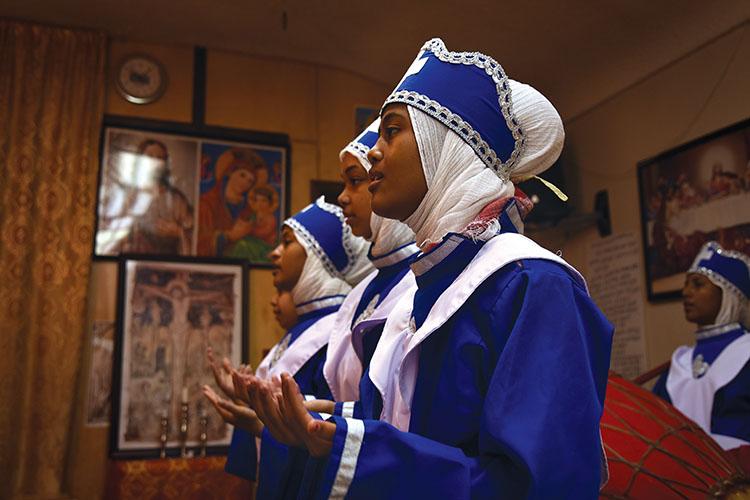
Her new church was a shocking downsize from that of Kenya. Many of the church attendants were also born in the U.S., causing variance in Tigrinya fluency and cultural ties.
Asghedom was quick to realize just how small the Eritrean community was in Portland.
She attended Woodlawn school as an eighth grader, with hopes of connecting with other Eritrean people. But those hopes faded fast.
As an ESL student, her English made it difficult to connect with other students. During a group project, she remembers getting left out by the other members.
When the teacher talked with one of the students in her group, Asghedom remembers the weight of what the teacher was told.
“He was like, ‘She doesn’t know English. How is she going to help me?’” she recalls. “After that, it was really hard for me to work with people. Even though I thought I helped them … it’s not like they’re going to put it in there.”
Saimon Asghedom faced similar barriers when he started freshmen classes at Grant. He remembers his notion of the country before coming to the U.S. was largely influenced by American movies. They portrayed something far from his reality.
“It’s not what I imagined in my mind,” he says now. “They don’t show the depths and the loneliness you feel here.”
As Yanet Asghedom began high school, the hardships continued. She still remembers the overbearing dread she felt entering her English classes.
Some teachers, she says, have consistently failed to recognize her needs as a learner.
“There are some teachers that say, ‘I don’t care where you came from, or I don’t know what you’re going to do, but you have to do as good as them. That’s just the way you’re going to pass the class,’” she says. “You have to struggle.”
Because of the language divide, Asghedom found herself becoming introverted at school, often worrying about how she would seem to others. “I wouldn’t raise my hand and answer,” she says. “Because I feel like I would say something wrong, and people are just going to make fun of me.”
According to Francisco Garcia, the district’s International Youth Leadership Conference program manager at PPS, the language difference comes with many misconceptions. “Some of these images are imposed on them like: ‘You are this way. You are ESL. And you have a lack. You’re not going to make it into this system,’” Garcia says.
As Asghedom became more reserved, she found it difficult to connect with native speakers at Grant. Worried about what others might think of her English, Asghedom spent much of the beginning of high school feeling isolated.
Suzanne Toole, an ESL counselor with the district who helped start the council, sees this as a common refrain. “They are very much accused of being quiet,” Toole says. “But an invisibility comes with that that really they hadn’t planned on.
“Your high school is kind of your world you live in every day, and it’s a very limited experience when you’re struggling,” she says.
For Asghedom, the ELD class at Grant served as a safe haven at school. There, she befriended a fellow student, Yaislenis Estrada, who immigrated to the U.S. from Cuba. Both English learners, the two were quick to form a tight bond.
“We could talk about anything,” Estrada says. “It doesn’t matter what. We knew that it was a safe place where we could say anything and nothing would be exposed.”
Outside of school, Asghedom continued to attend weekly church services, the only place she could regularly gather with local Eritrean people.
Then, during her sophomore year, Asghedom and Estrada joined the IYLC together.
A part of the council’s aim is to bring ESL students together and empower them as leaders. At the monthly meetings, students delve into topics of culture and identity and share their day-to-day lives as a minority population in their schools.
The council has changed Asghedom’s life.
A close friend from the council, Mariamou Abdoulaye, an immigrant of Central African Republic and an ESL student at Benson High School, recalls the first time the two met.
“Since the day I saw her, I was like, ‘Whoa, she’s so cool, you know, let me talk to her … She’s like me,’” Abdoulaye says.
“When I came the first time, I was like, ‘Oh wow, you know, there’s more people like me here. There are people who are related to me with what I’m going through, you know, in life,” says Abdoulaye.
Asghedom’s role on the council has grown. Last year, she planned a presentation for the group’s annual conference to help eighth grade ESL students understand what high school is like.
Through IYLC, she says she’s had a complete transformation. “It helped me,” she says. “There’s some points where I just say, ‘OK, I’m gonna do it because I believe in it.’”
Marta Repollet, Grant’s ELD teacher, recognizes the change Asghedom, and her other students, have undergone. “To see that growth, to see that confidence in themselves as speakers, and socially as well as academic … being able to do that with these kids for four years is just amazing,” Repollet says.
Many hurdles, though, remain in play.
People, Asghedom says, continue to lack an understanding of where she’s coming from. “Some people like don’t know you and start judging you … when they see you or hear your English,” she says. “They just act like they know your whole entire story.”
It’s why most days, Asghedom can be found in Repollet’s room at lunch, with her cousin Haben Sebhatu and fellow ELD student Sagen Maharjan.
Beyond school, Asghedom attends church every Saturday and Sunday, a place, she says, that allows her to be herself. She serves as a member of the church’s choir and helps with the finances, dedicating much of her weekends to supporting the tight-knit Eritrean community.
“That’s the only place where I can find my culture, see my culture,” she says.
The service, all spoken in Tigrinya, lasts nearly six hours. On Saturdays, Asghedom can be found at the church, helping children born in the U.S. stay connected to their Eritrean roots.
Saimon Asghedom, is a deacon at the church. He sees his sister as a model: “She’s actually being a leader to the kids … you lead them (to) the path, and they will take it forever, that’s what the Bible says, so you know, she’s actually showing them the way, and I hope they grow up to be like her.”
As she starts to look ahead, Asghedom plans to attend Portland Community College to improve her English before heading to a four-year college to study occupational therapy.
Knowing full-well the challenges that accompany a new life in America, she hopes to someday serve immigrants like herself.
“I don’t want people to go through the same struggle I went through just because they didn’t find people to help them out,” she says. “I know all the challenges. I’ve been through it.” ◆

